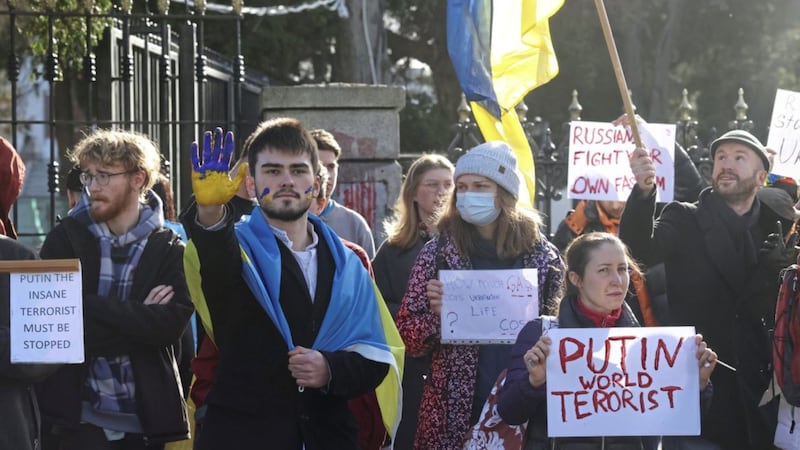SOMETHING of an unsung heroine these days, Rosa Luxemburg (1871-1919) was a co-founder with Karl Liebknecht and others of a group in Germany called the Spartacus League, named after one of the leaders of a slave uprising in ancient times against the Roman Republic.
After the Social Democratic Party voted for credits to fund the German military in World War One, Luxemburg and her friends campaigned among the working-class for an anti-war general strike. Their activities were mirrored on the Russian side by Vladimir Lenin and his friends who sought to convert the war into a class conflict across the entire continent where the workers would unite to overthrow the bourgeoisie and aristocracy to establish an egalitarian socialist society.
Since the outbreak of the Russia/Ukraine crisis, this scenario has again been put forward by elements on the far left, although it seems unlikely to become a reality anytime soon. In the meantime, the widely-propagated view is that Vladimir Putin is the bad guy in the current sequence of events and the rest of us should do everything, short of declaring World War Three, to assist the Ukrainians.
Not many people would be opposed to having the gates thrown open, across Europe and elsewhere, to admit refugees from the Russian onslaught. However it was difficult not to feel some discomfort at the news that Germany had abruptly reversed its long-standing policy of never sending weapons to conflict-zones. Berlin decided to provide 1,000 anti-tank weapons and 500 Stinger anti-aircraft defence systems to Ukraine, on the basis that the Russian onslaught was a complete game-changer. “The Russian invasion of Ukraine marks a turning point,” German Chancellor Olaf Scholz said in a statement. “It threatens our entire post-war order.” Berlin’s consent was also required to send weapons from some other countries to Ukraine which had originally been manufactured in Germany, e.g., the transportation of a consignment of howitzers from Estonia.
This was followed by an even more extraordinary development when the European Union announced a fund of €450 million (equivalent to almost £378m at time of writing) to provide weapons and other material to the Ukrainian Army. Never before has the EU agreed to buy lethal weaponry for a participant in a conflict (Ireland will “constructively abstain” and supply only non-lethal material such as helmets, medical equipment and fuel.)
President of the European Commission, Ursula von der Leyen (formerly German Defence Minister) said: “For the first time ever, the European Union will finance the purchase and delivery of weapons and other equipment to a country that is under attack. This is a watershed moment.”
You wonder what the late SDLP leader John Hume would say, bearing in mind how he regularly cited the European Union as a role model for peacemaking and spoke fondly of his first visit to the bridge at Kehl, connecting the former adversaries France and Germany. I had the privilege of being in attendance when he received, jointly with Ulster Unionist leader David Trimble, the Nobel Peace Prize in Oslo back in December 1998. In his acceptance speech, Hume described the EU as “the best example, in the history of the world, of conflict resolution and it is the duty of everyone, particularly those who live in areas of conflict to study how it was done and to apply its principles to their own conflict resolution”.
The EU approach to resolving the current conflict includes supplying the sinews of war to one of the opposing sides. Small wonder that the announcement was followed by an appeal from Ukraine President Volodymyr Zelensky to let his country join the EU: "We appeal to the European Union for the immediate accession of Ukraine via a new special procedure."
Mr Zelensky may have worked as an actor and comedian in a previous life, but this time he certainly wasn’t joking.
Nearer home, questions are being raised about Irish neutrality, e.g., suppose that an EU member state was attacked, would we remain on the sideline? Ukraine may be knocking on the door, but there are already five EU member states that have a land border with Russia: Finland, Estonia, Latvia, Lithuania, and Poland. In the event that Putin launched an attack on any of them, what would Ireland do?
Four of those five EU countries are also members of the North Atlantic Treaty Organisation and Nato rules require that an armed attack against one or more member state in Europe or North America “shall be considered an attack against them all”.
There could be even more dramatic times ahead.
Email: Ddebre1@aol.com; Twitter: @DdeBreadun








